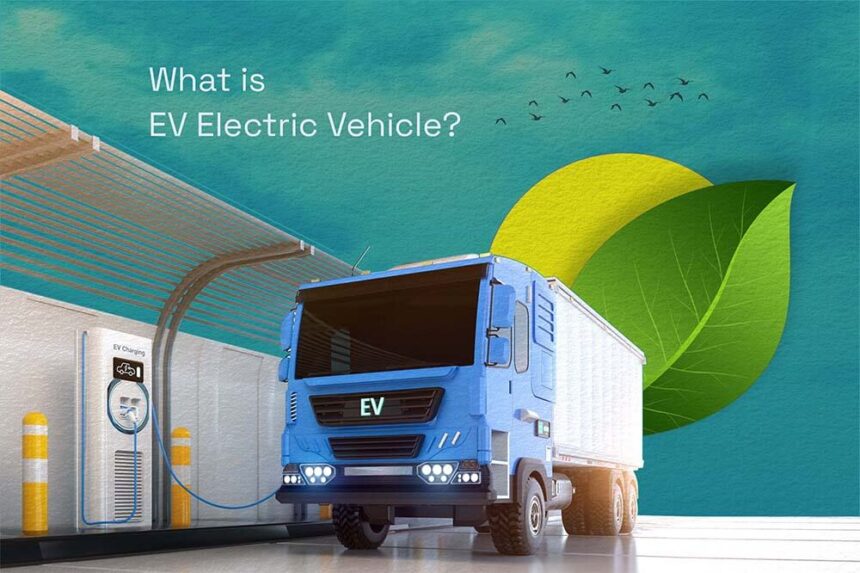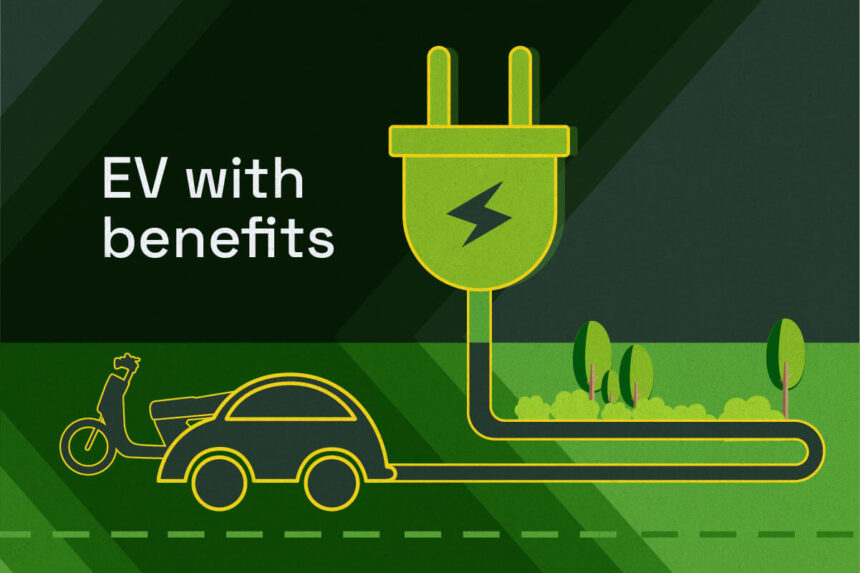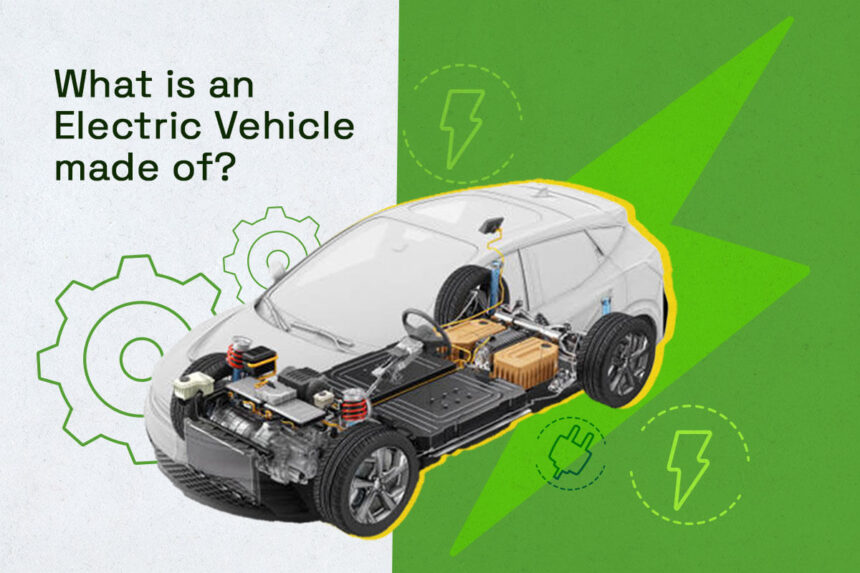Electric vehicles (EVs) have experienced a remarkable surge in popularity over the past decade, revolutionising the automotive industry and reshaping the way we think about transportation. With their environmental benefits, technological advancements, and government support, EVs are charging ahead and transforming the future of mobility.
The rise of electric vehicles (EVs)
Environmental benefits
One of the primary driving forces behind the rise of EVs is their significant environmental advantages over traditional internal combustion engine (ICE) vehicles. EVs produce zero tailpipe emissions, reducing air pollution and greenhouse gas emissions, which are major contributors to climate change. By transitioning to electric mobility, we can reduce our carbon footprint and work towards a more sustainable future.
Technological advancements
Advancements in battery technology have played a crucial role in making EVs more practical and appealing to consumers. The development of lithium-ion batteries has significantly improved the range and performance of EVs, addressing the issue of range anxiety. Moreover, ongoing research and development are continuously enhancing battery efficiency and reducing costs, making EVs a more viable option for a broader range of consumers.
Government incentives and regulations
Governments worldwide have recognized the importance of transitioning to cleaner transportation and have implemented various incentives and regulations to promote the adoption of EVs. These initiatives include tax credits, rebates, and subsidies for EV purchases, as well as the establishment of charging infrastructure networks. Additionally, some countries have set ambitious targets to phase out the sale of new ICE vehicles, further driving the demand for EVs.
Challenges and barriers
While the growth of EVs is impressive, there are still challenges and barriers that need to be addressed for widespread adoption.
Range anxiety
Range anxiety, the fear of running out of battery power and being stranded, has been a significant concern for potential EV buyers. However, with advancements in battery technology, the range of EVs has increased significantly, alleviating this concern for most everyday commuting needs. Additionally, the rapid expansion of charging infrastructure, including fast-charging stations, is making long-distance travel more feasible for EV owners.
Charging infrastructure
The availability and accessibility of charging infrastructure play a crucial role in the widespread adoption of EVs. To overcome this challenge, governments, private companies, and utility providers are working together to develop a comprehensive charging network. Increasing the number of charging stations in public areas, workplaces, and residential complexes is essential to support the growing EV market.
Cost considerations
While the cost of EVs has been decreasing steadily, upfront purchase prices are still higher than those of traditional vehicles. However, it’s important to consider the total cost of ownership, including lower operating and maintenance costs of EVs. As economies of scale are achieved and battery technology continues to improve, the price gap between EVs and ICE vehicles is expected to narrow further, making EVs more affordable for the average consumer.
Key players in the EV market
Several key players have emerged in the electric vehicle market, driving innovation and competition in the industry.
Tesla
Tesla, led by visionary entrepreneur Elon Musk, has been at the forefront of the EV revolution. With their groundbreaking electric car models like the Model S, Model 3, and Model X, Tesla has set new standards for performance, range, and sustainability. Additionally, Tesla’s investments in charging infrastructure, such as the Supercharger network, have addressed the concern of long-distance travel and positioned them as a leader in the EV market.
Traditional automakers entering the EV space
Recognizing the growing demand for electric vehicles, traditional automakers have also made significant strides in the EV space. Companies like Nissan, Chevrolet, BMW, and Volkswagen have introduced electric models to their vehicle lineup. This shift by established automakers is a clear indication of the industry’s acknowledgment of the importance of electric mobility and their commitment to sustainable transportation.
Emerging electric vehicle startups
Beyond the established players, there is a growing number of electric vehicle startups that are disrupting the market. Companies like Rivian, Lucid Motors, and NIO are pushing the boundaries of design, technology, and performance in the EV sector. These startups are injecting fresh ideas and competition, driving innovation and offering consumers more choices in the rapidly expanding electric vehicle market.
The impact of EVs on the automotive industry
The surge of electric vehicles is not only transforming the way we commute but also reshaping the entire automotive industry.
Disruption of the traditional supply chain
The rise of EVs has disrupted the traditional automotive supply chain. With the shift to electric powertrains, there is a growing demand for components such as batteries, electric motors, and charging infrastructure. This has created new opportunities for suppliers specializing in EV technology, while traditional suppliers are adapting their operations to cater to the changing needs of the industry. The transformation of the supply chain is revolutionizing the manufacturing processes and creating a ripple effect throughout the automotive ecosystem.
Job opportunities and economic growth
The growth of the EV market has also brought about new job opportunities and economic growth. As the demand for EVs increases, there is a need for skilled workers in manufacturing, research and development, and charging infrastructure installation and maintenance. Moreover, the transition to electric mobility has spurred investment and innovation in related industries, such as renewable energy, battery technology, and smart grid systems. This integration of sectors is driving economic growth and positioning countries at the forefront of sustainable transportation solutions.
Transition to sustainable transportation
Electric vehicles are a crucial component of the global transition to sustainable transportation. As we aim to reduce greenhouse gas emissions and combat climate change, the electrification of transportation plays a pivotal role. By shifting from fossil fuel-powered vehicles to electric vehicles, we can significantly decrease our dependence on finite resources and reduce the environmental impact of transportation. The growth of the EV market signifies a collective effort to create a cleaner, greener future for generations to come.
The future of EVs
The future of electric vehicles holds immense potential for further advancements and integration with other technologies.
Battery technology advancements
Battery technology is a key area of focus for further improvement in electric vehicles. Continued research and development efforts aim to enhance battery energy density, reduce charging times, and increase overall efficiency. Advancements in solid-state batteries and other emerging technologies could lead to even more significant breakthroughs in the performance and affordability of EVs.
Autonomous driving capabilities
The convergence of electric vehicles and autonomous driving technologies is an exciting prospect for the future. As self-driving capabilities continue to evolve, electric vehicles can leverage these advancements to become efficient and sustainable transportation solutions. Autonomous electric vehicles have the potential to revolutionise ride-sharing, reduce traffic congestion , and enhance overall road safety. The combination of electric and autonomous technologies is expected to redefine the concept of personal transportation and create new business models in mobility services.
Integration with renewable energy sources
The integration of electric vehicles with renewable energy sources is a significant development for the future of sustainable transportation. EVs can act as mobile energy storage units, allowing excess renewable energy generated from sources like solar and wind to be stored and utilized when needed. This synergy between EVs and renewable energy promotes a cleaner and more reliable energy ecosystem, reducing the reliance on fossil fuels and creating a sustainable power grid.
Conclusion
The surge of electric vehicles in the automotive industry is transforming the way we think about transportation. With their environmental benefits, technological advancements, and government support, EVs are reshaping the future of mobility. As challenges related to range anxiety, charging infrastructure, and cost considerations are addressed, the adoption of EVs is expected to accelerate further. The impact of EVs goes beyond individual transportation, with the disruption of the traditional supply chain, the creation of new job opportunities, and the transition towards sustainable transportation. As battery technology continues to advance and EVs integrate with autonomous driving and renewable energy sources, the future of electric vehicles holds immense promise.
FAQs (Frequently Asked Questions)
- Are electric vehicles really better for the environment?
- Yes, electric vehicles produce zero tailpipe emissions, reducing air pollution and greenhouse gas emissions. They play a vital role in mitigating climate change and promoting cleaner air quality.
- How far can electric vehicles travel on a single charge?
- The range of electric vehicles varies depending on the model and battery capacity. Modern EVs can typically travel between 150 and 300 miles on a single charge, with advancements in battery technology continually improving range capabilities.
- Is it expensive to install a charging station at home?
- The cost of installing a home charging station can vary depending on factors such as electrical infrastructure and desired charging speed. However, there are often government incentives and rebates available to help offset the installation costs.
- What is range anxiety, and how can it be overcome?
- Range anxiety refers to the fear of running out of battery power and being stranded with an electric vehicle. Advances in battery technology, increasing charging infrastructure, and improved range estimates have significantly reduced range anxiety. Planning routes and utilizing charging networks can further alleviate this concern.
- Will electric vehicles replace traditional gasoline-powered vehicles entirely?
- While the adoption of electric vehicles is growing rapidly, it’s unlikely that they will entirely replace gasoline-powered vehicles in the near future. However, the transition towards electrification is expected to continue, driven by environmental concerns and technological advancements.
Please note that this article is for informational purposes only and does not constitute professional advice.







